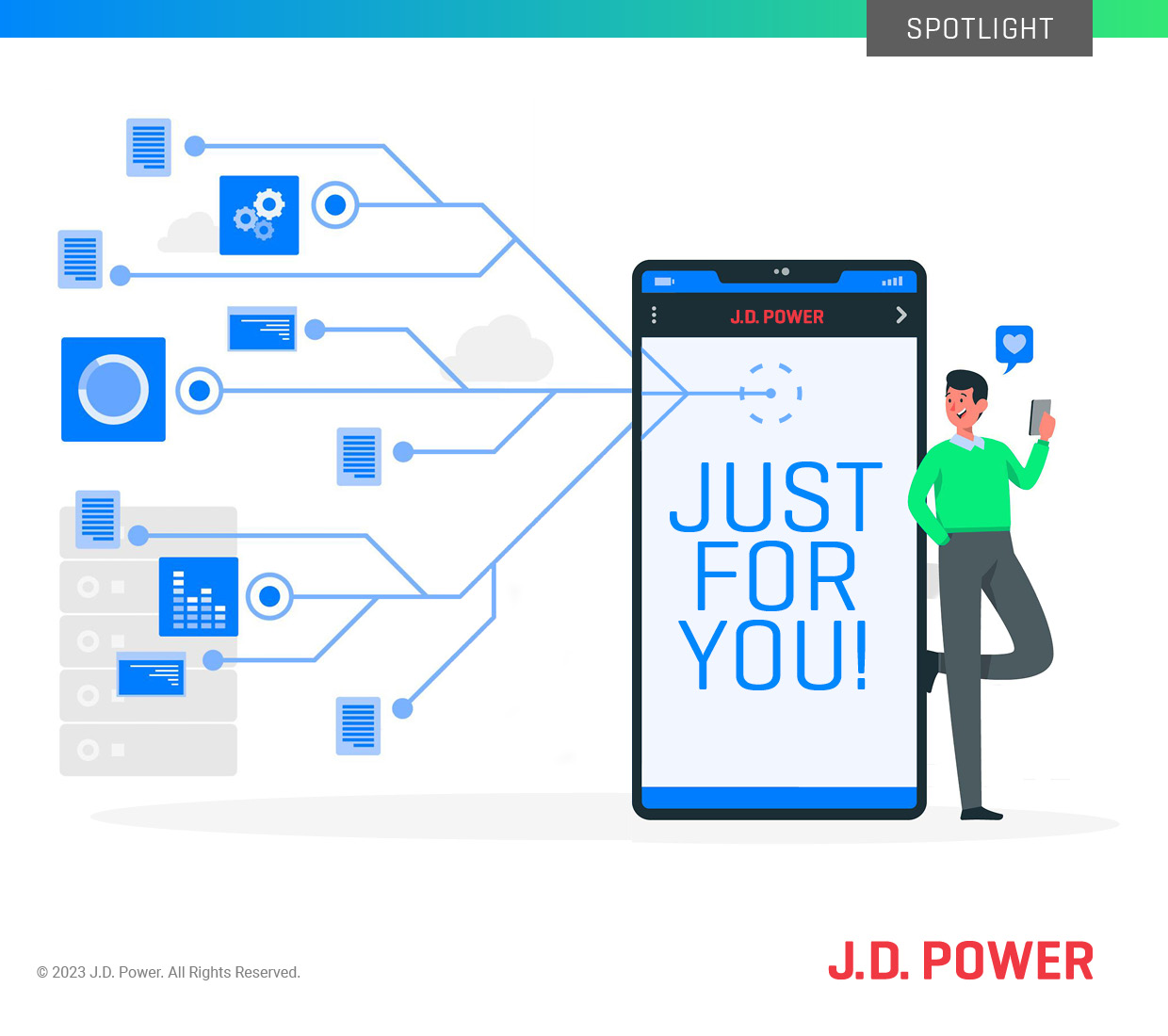The Business Case for Personalization
Personalization is powerful and has become integral to any successful marketing strategy. In fact, 92% of consumers and prospects say they expect a personalized experience. (Salesforce, “State of the Connected Customer,” 2019). With the increasing shift to the sale and purchase of goods and services to digital platforms, personalization is a trend that has taken on even more importance.
On this episode of Innovating the Customer Experience Podcast, our J.D. Power experts Michael Vermillion, Senior Managing Director, Global Business Intelligence, and Mark Miller, Customer Service Advisory Practice Leader, are joined by Diane Chen and Caleb Hutchinson from Virsitil to explore personalized marketing, also known as individual marketing, and look into the benefits of delivering a strategic personalized experience to your customers.
What is personalization and how important is it to customers?
Personalized marketing is built on the concept of creating extremely targeted customer experiences. Chen explains the fundamentals of this approach, “It's a marketing strategy by which companies leverage data analysis and digital technology to deliver individualized messages and product offerings to current or prospective customers…That makes your consumer feel like the company knows them in every engagement of their digital journeys.”
Breaking it down further, a company needs to make a customer’s experience feel as relevant as possible across all offered channels. How important is personalization to consumers? According to a Salesforce Report, 84% of customers say being treated like a person, not a number, is very important to winning their business. (Salesforce, “State of the Connected Customer,” 2019).
Millennials and Gen Z stand out in their desire for personalized and targeted strategies. They grew up in a digital world and now expect tailored content and recommendations in all aspects of their lives. Relying on personalization strategies can drive loyalty with these key demographics and create lifelong customers. Ultimately, this will result in higher engagement and conversion rates.

What are the biggest challenges to delivering a successful personalization strategy?
Many companies do not know where to start. They compare themselves to big tech conglomerates like Amazon and think that the ability to offer personalization is out of their reach. However, today many tools exist to overcome this perceived barrier to entry. Having a member on your team who understands personalization and can sort through available tools to identify the right ones for you is increasingly helpful.
Once you begin collecting the information that supports personalization, the next challenge is knowing how to use the data and incorporating the data into a larger strategy. A business may become flush with customer details but struggle to utilize the data in meaningful ways.
Another challenge is timeliness. The longer a company struggles with deciding how to apply customer data to its marketing strategy, the less relevant, and therefore less valuable, this data becomes.
What does the future of personalization look like?
Companies will invest more in customer data as part of building out a long-term customer personalization plan. Why? Because investing in personalization is self-funding. According to PwC's Research, consumers are willing to pay 16% more for personalized experiences. Additional research by McKinsey found personalization programs can cut marketing and sales costs by as much as 20%.
Relevant and targeted one-to-one emails can increase conversion rates and revenue by driving customers back to make additional purchases. However, reports from Google and Apple indicate that the data giants are cracking down on cookie-dependent acquisition tactics, making it essential to invest in first-party data to create personalized and authentic customer experiences.
How can business leaders get the personalization conversation started in their own organization?
Brands across all industries need to understand that personalization is now required, having become the universal expectation of consumers. However, designing and implementing a long-lasting and successful personalization plan requires time, effort, and financial resources.
It is important to understand that a successful strategy must be considered across all channels and at every stage of the customer journey, so a few key areas to think of when beginning these conversations are:
- Understand your company’s core capabilities. Assess what technology will be needed.
- Decide which team members will carry out any personalization strategies. Someone with the right background will be able to fine-tune and connect with your customers and put intentionality toward the service experience.
- Once a strategy is in place, take time to refine this experience. Make sure to connect with your consumers post-sale, which will continue to drive loyalty and keep them coming back for future purchases.
Creating a thoughtful and individualized plan will take time and resources but will deliver a more rewarding and useful experience for your customers.
Listen in to the episode below to learn more about personalized marketing, and the benefits it can provide your organization.
Share this
You May Also Like
These Related Stories

The Recipe for a Successful Customer Experience Transformation

Sorry, I Didn’t Catch That: The Importance of Active Listening


.png?width=276&height=327&name=Innovating-Customer-Experience_Podcast_Sidebar%20(1).png)
No Comments Yet
Let us know what you think